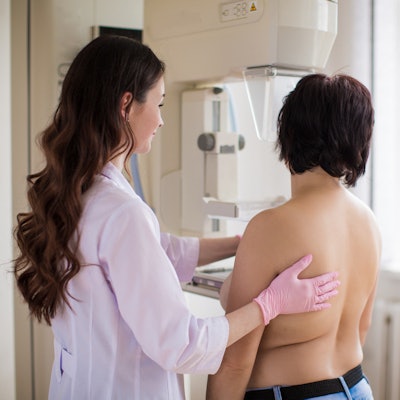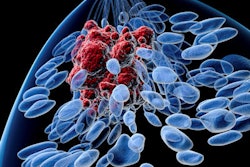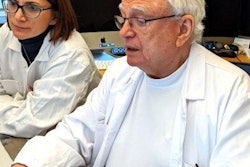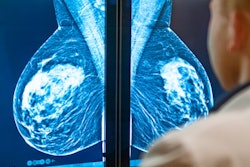
An imaging facility in Sweden plans to restart breast cancer screening in the next week or two, and clinics across Hungary expect to start screening patients regularly from 1 June, expert sources have revealed to AuntMinnieEurope.com.
The COVID-19 pandemic has meant that all European countries halted routine mammography screening some weeks ago.
In mid-March, Hungary suspended screening as well as usual diagnostics of breast cancer, except for clinically suspicious cases, according to Budapest radiologist Dr. Gábor Forrai, PhD, past president of the European Society of Breast Imaging (EUSOBI). However, treatment of already diagnosed cancers continued.
 Dr. Gábor Forrai, PhD, past president of the EUSOBI.
Dr. Gábor Forrai, PhD, past president of the EUSOBI.In late March and early April, Wales, Scotland, and Northern Ireland all paused their routine screening programs -- including breast cancer screening -- in response to the COVID-19 pandemic. Other countries followed suit.
Screening mammography pioneer Dr. László Tabár views the suspension as an unfortunate necessity. He's not worried about women returning for their screening mammograms because he said they're very much aware screening mammography works. However, he is concerned about the types of cancers women will present with when they return for their screens -- namely, advanced cancers.
"The main concern is that because 'cancers grow every day,' there will be time added to tumor growth and as a result of it, some tumors might advance to an undesirable phase," Tabár, a professor emeritus of radiology at Uppsala University in Sweden, told AuntMinnieEurope.com.
If women present with advanced breast cancers, they have an increased risk of dying from the disease, which would be a significant setback for screening mammography, he said.
"Early detection and treatment of breast cancer in early phase can be considered one of the most important accomplishments in the past 50 years in clinical cancer research," Tabár noted. "This crisis is disturbing our life-saving activities."
However, those life-saving activities are set to resume in the next week or two at Falun Central Hospital in Sweden. In addition, Hungary plans to make its breast cancer screening services operational on 1 June. Breast diagnostic services may be capped at four patients per hour, and other safety precautions would also be enacted, Forrai said.
"This is preliminary information that could be modified later," he said. "All news is quickly outdated nowadays."
If the positive trend continues, more countries will resume their breast cancer screening services over the coming weeks.



















